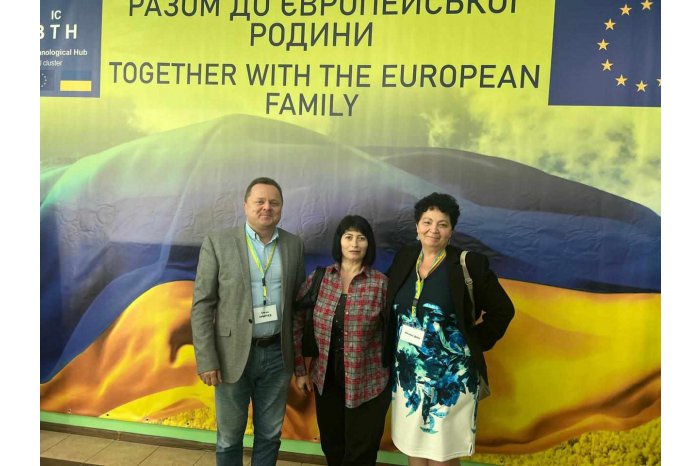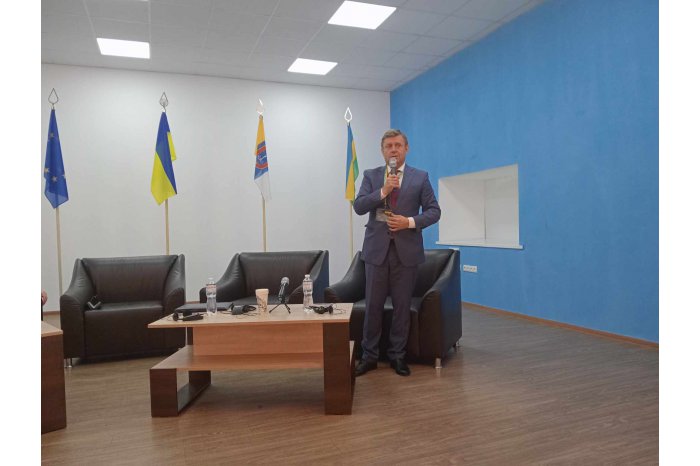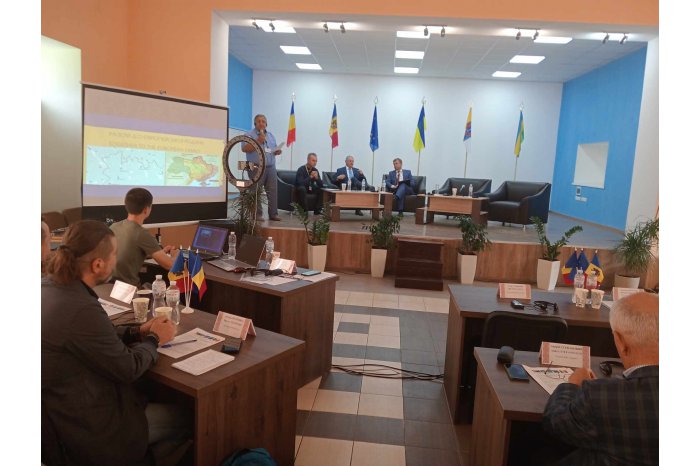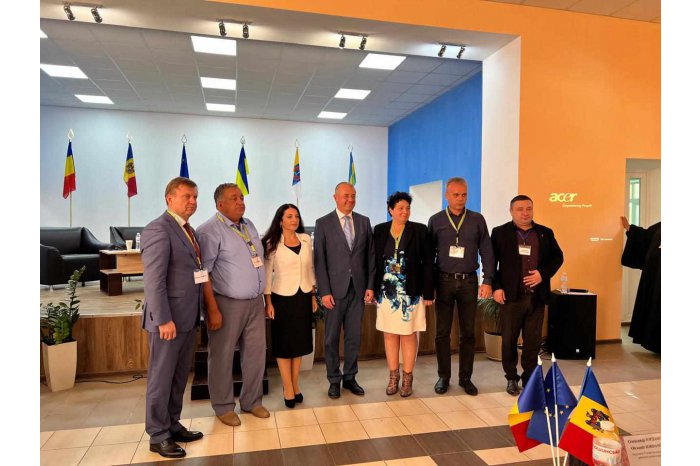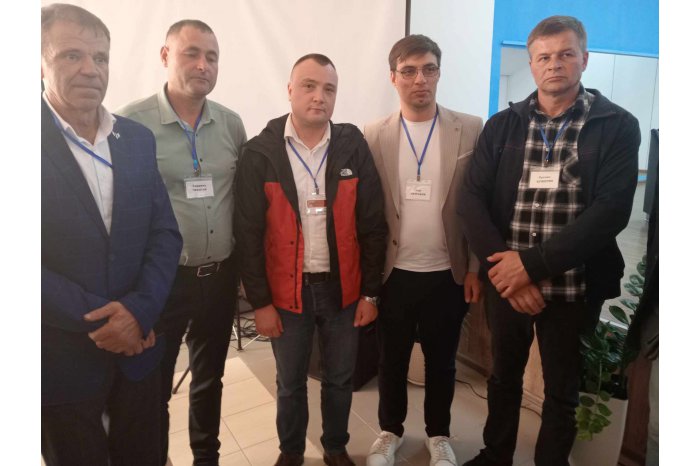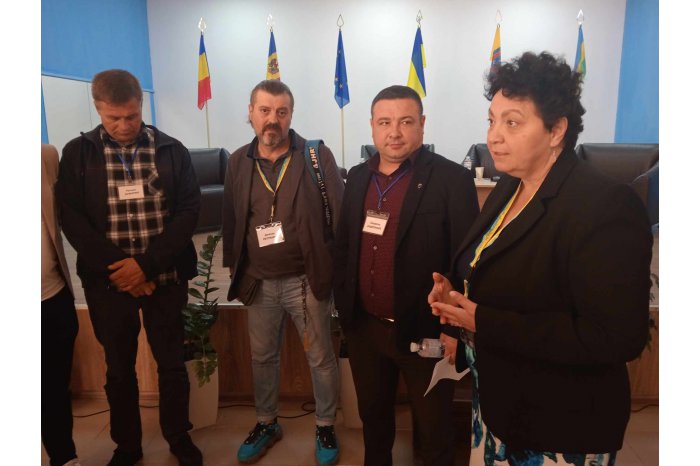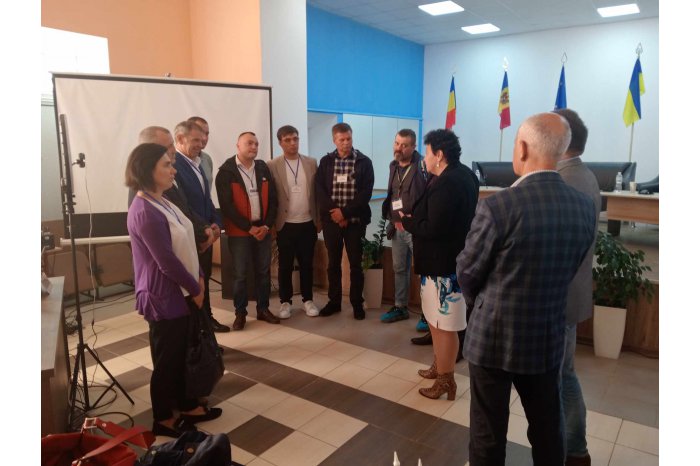MOLDPRES REPORT // Prospect of creating Bugeac Euroregion becoming clearer
17:28 | 22.09.2024 Category: Regional
Border localities in the south-east of the Republic of Moldova and Odessa region, Ukraine are increasingly determined to contribute to the strengthening of cross-border relations, which have several common factors - the same origins, culture, language and aspirations for a European path, chosen by both states, located in close proximity, with similar challenges.
The fourth edition of the regional conference, held this week under the aegis of the Bessarabian Technology Hub (BTH) in the village of Lesnoe, Borodino village in the Odessa region, had a substantial agenda, with a special focus on the creation of a new Euroregion, under the name Bugeac. The host of the event, Ivan Kiusse, the head of the Borodino territorial-administrative administration, revealed that since September 18 this year, following a law of the Verkhovna Rada of Ukraine, renaming Borodino into Bugeac, it is more than an honorable obligation not only to return to the natural toponym of the region, but also to be enshrined in important, vital, historical things, which would be a source of pride for generations.
"Since the beginning of Russia's war against Ukraine, both in Ukraine and in the Republic of Moldova, we have realized that the only right way is European accession. Only in the European space every national entity can enjoy rights, order, rule, legality and everyone has the possibility to preserve their national identity. Now that we have managed to return to the name that identifies us, we are also duty-bound to establish something that would allow growth, regional development, promotion of local traditions and crafts, all of which are extremely necessary in the pre-accession to the European Union", said Ivan Kiusse.
The purpose of the conference was to assess the role of technology hubs in accelerating the transformation of border regions, preparing them for EU accession. The forum brought together representatives of the diplomatic staff, central, local and regional officials, European experts, local leaders and business representatives to discuss and share best practices and innovations that can boost the socio-economic development of these areas.
Present at the event, Victor Micula, Romania's Ambassador to Ukraine, said that any integration starts at the borders. "Cross-border cooperation is already a very important tool for communities on both sides of the border to get to know each other and to start working together, to implement projects financed by non-reimbursable European funds, plus national and local contributions. Now that the Republic of Moldova and Ukraine have become candidates for accession to the European Union, European best practices are becoming accessible to some regions that were not eligible before", said Victor Micula.
Valeriu Chiveri, Moldova's ambassador to Kiev also mentioned Moldova's clear stance on the war in Ukraine, which was started by Russia and associated with blood, murders, victims, abuse of the sovereignty of an independent state. "In spite of the war, relations between our states have experienced a major level of affection. Our trilateral cooperation is at a qualitative stage at the high level, as well as at the regional level in the cross-border context. The Republic of Moldova and Ukraine have a great advantage - we have good friends who have the experience of joining the European Union and are open to share this experience with us. For the Republic of Moldova, the advantage is even greater: we speak the same language, and all European directives, thanks to Romania, are already drafted in our language. All that remains is to implement them. The process of European integration is a practical one, which allows us to carry out it through joint exercises," Valeriu Chiveri emphasized.
"It is something that unites us all, as has been indicated in the materials of this forum, Together in the European family, which is combined with the EU slogan - United through diversity. In other words, you are where you come from, but you do not lose your identity. You are still Moldovan, you will still speak the same language, but it will still be understood by 27 countries. I very much appreciate what you are doing here, because united you are stronger. The most beautiful European policy that you have already benefited from is the neighborhood policy", explained Monica Dinu, a consultant for European funds in Romania.
At the same time, one of the co-founders of the Bessarabian Technology Hub from the Republic of Moldova, Eugen Hristev, says that the project already justifies existence with some tangible results.
"The presence of the ambassadors of the Republic of Moldova and Romania to Ukraine at this event proves that this initiative is taking a very clear shape in the process of accession to the European Union.
Dmitry Petrenko, another head of the Bessarabian Technology Hub from the Republic of Moldova, says he has managed to bring together several mayors of localities in the south-eastern cross-border area of Moldova, bordering Ukraine. "Our projects may not, for the time being, be on the scale that we are actually aiming for. But we know that starting with small steps, we can achieve incredible results. As soon as every mayor in this area understands the priorities and benefits of the locality he or she leads, in the context of using European funds, then we will have some famous successes. For the moment, we have several happy examples that show that our plans are not utopian, but viable and have a right to life," points out Dmitry Petrenko.
Frumușica-Nova agro-tourism leisure cluster is part of the Bessarabian Technology Hub which shows that the region can become prosperous if there is not only business interest but also passion for the land. "Local values, traditions and customs influence how new ideas and technologies are adopted and integrated into community life. By preserving and promoting cultural identity, multidimensional transformation can become an inclusive and sustainable process that respects the diversity and specificity of each region. Culture stimulates creativity and innovation, key elements for technological and economic development. Thus, the active involvement of cultural communities and the harnessing local cultural heritage are fundamental for the success of this region", says Alexandr Palariev, the founder and director of the cluster.
Present at the event, representatives of the town halls of villages on the south-eastern border of our country, from the Stefan Voda and Causeni districts, Ukrainian LPAs, representatives of the scientific as well as business communities from both countries, examined the possibilities and benefits of a new project envisaging the establishment of Bugeac Euroregion, with further consolidation, development and expansion including of the Local Action Groups (LAGs) of the LEADER network formed in the region.
The Bessarabian Technological Hub is positioned as an engine of transformation before the accession of the border administrative territories of the southeastern part of the Republic of Moldova and Odessa region, Ukraine, organized by the authorities of Ukraine, the Republic of Moldova, Frumușica-Nova cluster, the ESRI ArcGIS company, with the support of national and international partners.
In May this year, several town halls from our country participated in the third regional conference of the Bessarabian Technology Hub, dedicated to the digital transformation before EU accession of the border administrative territories of the South-Eastern part of the Republic of Moldova and Odessa region, Ukraine. The event took place on the territory of Frumușica Nova in Borodino, Bolgrad district.
In 1812, when the Russian Empire annexed the eastern part of the Principality of Moldova between the Prut and the Dniester, the imperial authorities extended the name of Bessarabia to the whole of the annexed territory, using the Turkish name of Bugeac for "historical Bessarabia". The Kingdom of Romania maintained these names between 1918 and 1940.
Reporter: Lilia Grubii
